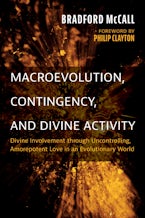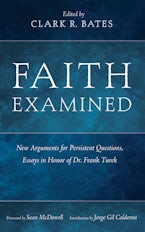Science and faith have had a long intertwined history. The relationship has run the gamut from a total disconnect to an adversarial battleground where proponents of each claim total victory. However, if God created the physical world and remains active in the physical world, we cannot ignore the interaction nor can we assume or expect a world of conflict. While nineteenth-century physics brought classical physics--which quite reasonably divorced God and nature--to a culmination, twentieth-century physics, especially quantum physics, has opened a new realm of possible interactions. Even though one can reasonably say that no one understands quantum physics, the fruits of the discipline overflow the cornucopia. People of faith can share the feast; and people of science are welcome at the table of faith.
Dillard Faries is Professor Emeritus of Physics at Wheaton College. His special interests have been nonlinear optics, physics of music, and quantum physics.
“This is a unique, enlightening, chronological account of the development of modern physics through quantum mechanics. 75% of the content will not be found in textbooks because it concentrates on the personal history, philosophy, and theology of the scientists involved. Faries is also masterful at bringing his own theology into the discussion of quantum mechanics, letting them inform each other about a series of unresolved paradoxes.”
—William Wharton, Emeritus Professor of Physics, Wheaton College, Wheaton, Illinois
“This is a knowledgeable, credible, and challenging account that brings scientific causality and human life decisions and involvement into the ultimate definition of reality. Faries sets forth a beautiful example of how a meticulous, informed science and a committed, orthodox Christian faith can reason together in a harmonious manner.”
—Alan F. Johnson, Professor of New Testament and Christian Doctrine, Wheaton College and Graduate School, Wheaton, Illinois
“I’ve never had a conversation with Dillard Faries in which I didn’t come away with a deeper insight into Scripture or physics or whatever we happened to be talking about. This book has the same effect, with a subject that boggles the mind with the mysterium tremendum of the known universe.”
—Mark Galli, Editor in Chief of Christianity Today











